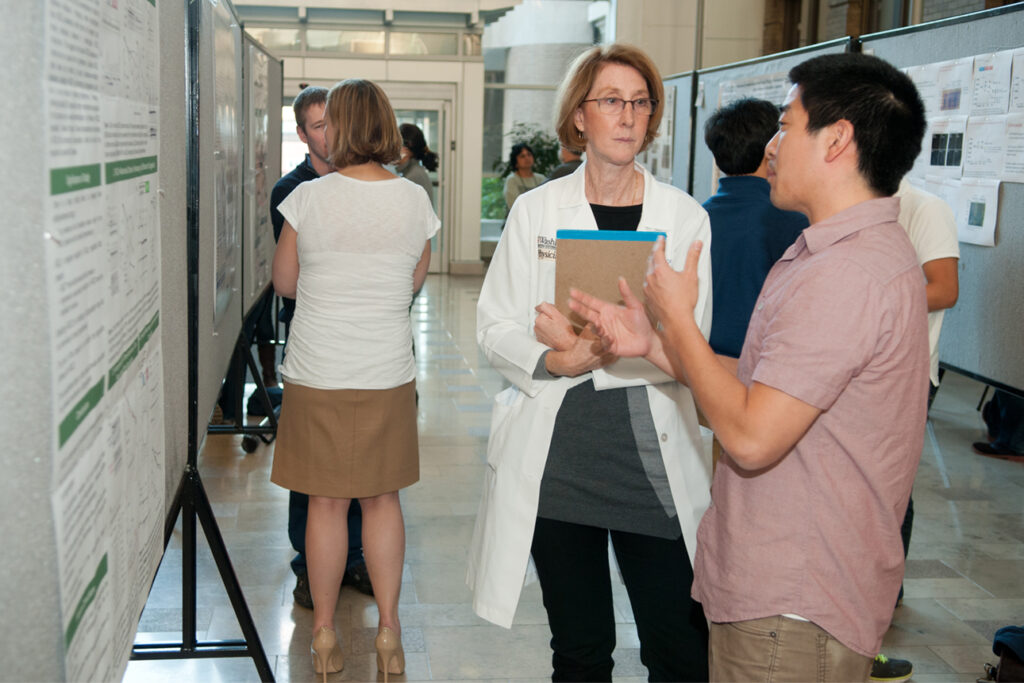
Research is an integral component of the cardiovascular fellowship training program, and all fellows are expected to engage in research during the course of their fellowship. The research environment within the Cardiovascular Division at Washington University School of Medicine is robust, and there are numerous opportunities available for training in basic, translational, and clinical science.
Investigator track
Fellows who choose the investigator track will spend a minimum of two years obtaining research experience after the completion of their clinical training. The division has an NIH-sponsored research training grant (T32); accordingly, fellows who wish to pursue the investigator track are not required to obtain their own funding in order to pursue one-two years of dedicated research. However, given that grant writing is an essential component of research career development, trainees aspiring to become independent investigators will be encouraged to apply for grant support during the course of their training.
Clinical track
Fellows who choose the clinical track will spend a minimum of six months acquiring research training, usually during their second and third clinical years. Fellows in the clinical track begin the process of selecting a mentor and planning a research project during the first clinical year, and it is expected that they develop a formal research proposal by December of the second clinical year. A designated research month during the second clinical year allows the fellow time to meet with his/her mentor and initiate work on the research project. The progress of the trainee is monitored closely by a research mentoring committee that assists the fellow with developing and/or implementing his/her research project.
Clinical research conference
In addition, fellows present their research plan at a clinical research conference during the third quarter of the second clinical year. The purpose of this conference is to provide the fellow with the opportunity to discuss the research proposal and to receive feedback from other fellows and faculty. Each fellow will have the opportunity to present his/her research findings at Cardiovascular Grand Rounds near the end of the third clinical year.
Research faculty mentors
A cardinal strength of the Cardiovascular Division is the broad range of research interests of the faculty, who are dedicated to mentoring residents, fellows, and junior faculty members.